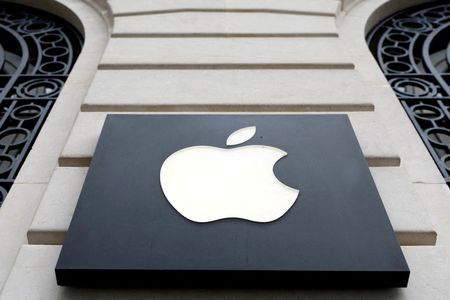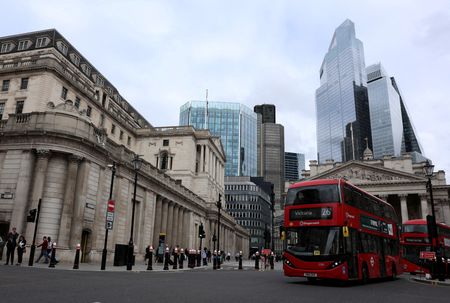LONDON (Reuters) -Higher U.S. tariffs on imports are weighing on growth in Britain and are likely to lead to downward pressures on British inflation over the medium term, Bank of England policymaker Swati Dhingra said on Thursday.
“In my view, the primary transmission channel of tariffs to the UK in 2025 come through weaker demand, as tariffs act as a drag on global growth,” Dhingra said in a speech to a research conference hosted by Ireland’s central bank.
The disruption to trade from tariffs “means lower overall growth – and some downward pressure on prices in the medium term,” she added.
Dhingra – who has voted for a faster pace of BoE rate cuts – also said excessively high interest rates could cause longer-term inflation problems by limiting investment in new production capacity and improvements in productivity.
On Saturday, BoE Governor Andrew Bailey told a meeting of financiers and policymakers in Washington that Brexit offered a warning to the world economy about the impact of trade barriers and was continuing to hurt the British economy.
Dhingra cited research published earlier this year which showed that services sectors most exposed to Brexit barriers had seen a 16% fall in exports to the European Union, which were not made up elsewhere.
“Brexit has demonstrated the corrosive effect of policy uncertainty on trade, productivity, and business investment,” she said.
Other research by economists pointed to British gross domestic product being 6%-8% lower, investment down 12%-18%, and employment and productivity down 3%-4% compared with staying in the EU, she added.
The British government’s Office for Budget Responsibility estimates that Brexit will reduce Britain’s long-term level of productivity by 4% compared with remaining in the EU.
(Reporting by David Milliken; editing by Suban Abdulla)










